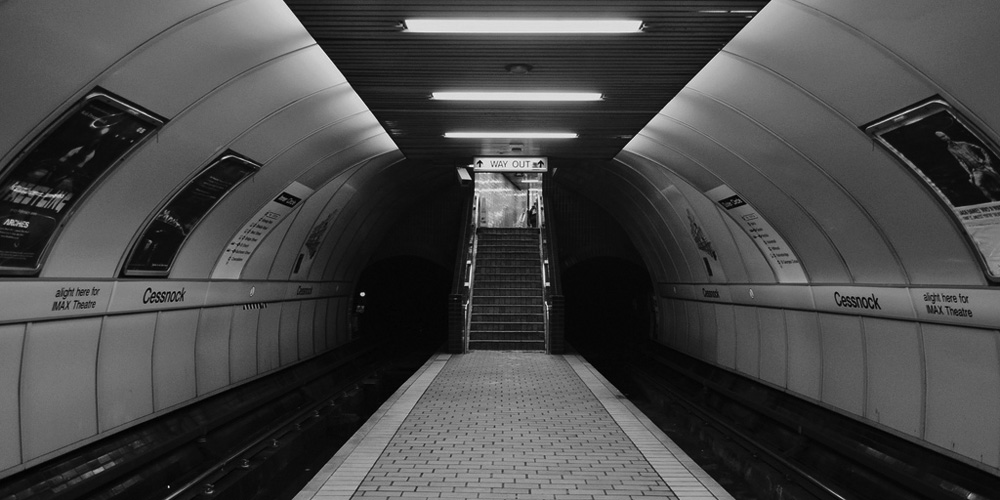Transforming transport
Climate change and the lack of public transport are closely connected, but this not a connection that is currently being discussed. This matters. We all know that climate change is caused by greenhouse gases including particulates which come from burning...
Climate change and the lack of public transport are closely connected, but this not a connection that is currently being discussed. This matters. We all know that climate change is caused by greenhouse gases including particulates which come from burning fossil fuels. One-third of these come from cars, lorries, vans, buses, coaches, trains and some other vehicles.
More than half of all domestic greenhouse gases generated by transport come from cars, compared to six per cent from public transport, including freight trains. Indeed, 17 per cent of all of Britain’s greenhouse gases come from cars.
However, 60 per cent of people in this country have no car. This means the majority of people are dependent on public transport. Public transport includes buses, coaches, trains, taxis, hired cars and car clubs all of which provide means for people to get about without having a car of their own.
For those without a car or adequate public transport, there are all the disadvantages of not being able to get to places, whether it’s getting to work, to entertainments, to visit friends and family etc. These are serious disadvantages and apply to people in nearly all of Britain. Inner and central London is a special and exceptional case owing to extensive public transport networks. Elsewhere, in big towns there may be good bus services during the day, but little or nothing in the evenings or on Sundays or public holidays – the very days when one most wants to be able to go out, visit places and friends – but no, one can’t.
What is even more serious are the difficulties that can arise even in quite large towns and cities: people may be unable to take a job; students might be able to get to a course, but unable to get home afterwards; and people cannot get to clinics or hospital either for treatment or visit sick friends or family, and we know such visits assist recovery.
If the situation is difficult in big towns and cities, in villages and rural areas, it is dire. In some places there is one bus per week which enables those living there to go into the nearest town, do their shopping and then come back, but allows no time for anything else – in this rich, densely populated country, this is not good enough.
The large numbers of cars and lorries on the roads cause wider costs to society as well as contributing to restrictions on the reasonable activities of individuals through ill health. We know that greenhouse gases are a potent cause of lung diseases, and significantly increase the risk of death for some individuals from asthma, bronchitis, and cancers. The noise caused by road traffic also causes stress, raised blood pressures and illness, and sometimes reduced hearing and lack of sleep. All these ailments require treatment either from a GP or a hospital; therefore a cost to the NHS.
On top of this, there are also daily road accidents; sometimes people are killed, often people are injured. Police, ambulances and fire services are called. After a very minor accident, where one car runs into the back of another with no one injured, the normal traffic flow can take an hour to be restored. Bus services can take longer to return to normal, drivers have been delayed and diverted, and pedestrians have been prevented from making their anticipated journey. Researchers have found that accidents are a major cost of road transport.
Can we afford this cost? I think not. And there are more costs. Where people cannot live normal lives because of the lack of public transport, they must either abandon the possibility of a normal participating life, move to a town where there is good public transport if they can … or buy a car. None of these outcomes is desirable. The first because it is, in effect, penalising and discriminating against those without a car who are not adding to pollution, the second because it means abandoning home and can make a village or small town unsustainable and may add to housing problems in the town to which they move and the third because it would mean more pollution and add to the risks of climate change.
So, what to do? We could begin by declaring the essential nature of public transport is in the same category as education services and health services. We could give public transport a protected position in the national budget, so as to prevent buses from becoming an extinct species in rural and suburban areas and small towns. We could take measures to discourage people from acquiring a car and thereby convincing themselves they must use it to justify spending all that money, we could make parking scarcer and more expensive, we could make buses more comfortable and with fewer cars, they would be faster, we could make fares cheaper with more passengers and faster journeys. With walking at least to the bus stop every day, people would enjoy better health, the streets would be pleasant and we could enjoy conversations as we walked, we would hear the birds singing. We could declare and enforce our human right to public transport.
Image: SarahElizabethC.
